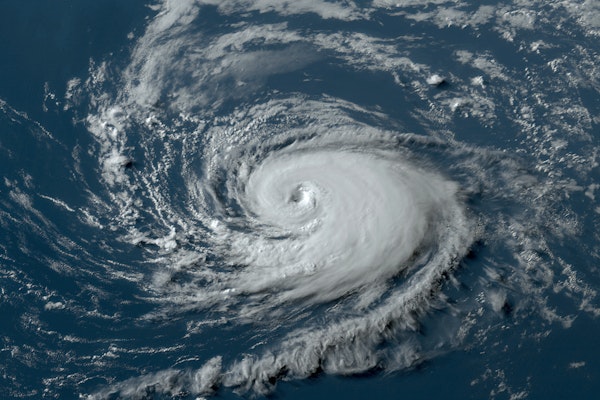
Trucking Firms Battle Rising Insurance Costs and Legal Challenges
Trucking companies face shrinking margins from high insurance premiums, nuclear verdicts, and slow claims resolution, but safety tech and tort reform offer glimmers of hope.
November 5
Auto
Insurance Industry
Litigation
Risk Management

AI-Driven Cyber Threats to Boost Cyber Insurance Premiums by 15 Percent in 2026
Forrester Research predicts AI adoption will fuel higher cyber insurance premiums and reshape insurer expense ratios in 2026. Carriers must adapt as risk complexity and automation pressures mount.
November 5
Legislation & Regulation
Risk Management
Technology
Underwriting

Winter Water Claims Surge: How Agents Can Prevent Frozen Pipe Losses
Frozen pipe claims cost insurers thousands each winter. Agents equipped with smart tech tools can curb losses and preserve client coverage.
November 5
Insurance Industry
Property
Risk Management
Technology

Critical Data Elements Reshape Insurance Data Strategy
Insurers are ditching blanket governance for a sharper focus on Critical Data Elements that directly impact business outcomes and decision-making.
November 5
Insurance Industry
Legislation & Regulation
Risk Management
Technology

Nurse Practitioner Accused of $31K Insurance Fraud in Staged Burglary
Authorities say a Carmel-based practitioner filed a suspicious insurance claim weeks after starting a policy and falsely reported luxury items stolen.
November 3
Fraud
Property
Risk Management
Indiana

NASCAR Champion Kyle Busch Sues Pacific Life for $8.5M Over Alleged Life Insurance Deception
NASCAR champion claims Pacific Life misrepresented a retirement-focused Indexed Universal Life policy, leading to a multi-million-dollar loss.
November 3
Insurance Industry
Life & Health
Litigation
Risk Management

Verisk Projects Up to $4.2B in Insured Losses from Hurricane Melissa in Jamaica
With insurance take-up rates below 20%, Hurricane Melissa’s record-setting impact on Jamaica exposes significant coverage gaps. Verisk and Aon warn of rising insured and economic losses.
November 3
Catastrophe
Insurance Industry
Liability
Property
Risk Management

Declining Public Trust in Healthcare Challenges Medical Malpractice Defense
Distrust in hospitals and physicians is reshaping jury perceptions, complicating healthcare litigation, and elevating risk for claims professionals.
November 3
Liability
Life & Health
Litigation
Risk Management

Freight Brokers Targeted in Sophisticated Cyber Cargo Theft Schemes
Hackers are exploiting logistics tech to bid on and steal real freight shipments, costing companies millions and disrupting supply chains.
November 3
Auto
Fraud
Risk Management
Technology

Underwriting Gets Faster and Smarter with AI and API-Driven Tools
MGA underwriters are turning to AI, APIs, and automation to speed up quotes, reduce busywork, and adapt to increasingly complex risks like crypto, EV infrastructure, and IoT.
November 3
Insurance Industry
Risk Management
Technology
Underwriting

AI Lawsuits Drive D&O Insurance Shifts as Regulators Target Misleading Claims
Rising AI-related shareholder suits, fraud cases, and regulatory actions are pressuring D&O insurers to reassess risk, raise premiums, and scrutinize disclosures.
November 3
Fraud
Insurance Industry
Litigation
Risk Management

Gen Z Shuns Insurance Careers Despite Seeking Stability
Gen Z values stability, but the insurance industry’s image as rigid, unethical, and uninspiring keeps them away. A new report shows what insurers must change to win them over.
October 29
Education & Training
Insurance Industry
Risk Management

Caterpillar’s AI Push Fuels New Insurance Risks in Autonomous Equipment
As Caterpillar evolves into a tech-driven service provider, insurers must rethink policies for autonomous systems, cross-border operations, and software-based liabilities.
October 29
Legislation & Regulation
Liability
Litigation
Risk Management
Technology

$18 Million Verdict: NCAA Found Negligent in Former College Player’s Head-Injury Suit
A jury in Orangeburg County, South Carolina awarded $18 million to former college football player Robert Geathers and his wife Debra after finding that the NCAA was negligent in failing to warn him of the long-term effects of repeated head trauma.
October 29
Insurance Industry
Liability
Life & Health
Risk Management
South Carolina

2025 Home Insurance Severity Hits 7-Year High
Wind, hail, and water-related claims pushed severity up 9% in 2024, with catastrophe claims reaching a 7-year high of 42%. Adjusters must navigate rising costs, inflation pressures, and shifting risk patterns.
October 27
Catastrophe
Insurance Industry
Property
Risk Management





